
Cote D'Ivoire
Contested claims of victory during Côte d’Ivoire’s 2010 presidential election—the first in a decade—triggered widespread post-election violence, in which women were often the first victims.

Contested claims of victory during Côte d’Ivoire’s 2010 presidential election—the first in a decade—triggered widespread post-election violence, in which women were often the first victims.
Before this election, NDI and its partners heard from women who reported they were afraid to participate even as voters in the 2015 elections at higher rates than men, out of fear that it would draw repercussions and a repeat of the violence they had seen or experienced in 2010-2011.
Contested claims of victory during Côte d’Ivoire’s 2010 presidential election—the first in a decade—triggered widespread post-election violence that lasted into 2011 and left over 3,000 people dead and thousands displaced. While men and women alike were affected by this violence, research by the Organisation des Femmes Actives de Côte d’Ivoire (OFACI) found that women were often the first victims of violence as they were more likely than men to be home caring for children. The presence of their children also meant they had more difficulty escaping from a threat.
Besides being more vulnerable to general post-election violence, women were also targeted with specific forms of violence. In focus groups following the post-election violence, NDI and its partners, the Regroupement des Acteurs Ivoiriens des Droits Humains (RAIDH) and the Côte d’Ivoire section of the Western Network for African Peacebuilding (WANEP), heard from women who said that because of the abuses they had suffered during the post-election violence, they did not plan to participate in the 2015 elections. Women said they were afraid to participate, even as voters, at higher rates than men out of fear that it would draw repercussions and a repeat of the violence they had seen or experienced in 2010-11.
During Côte d'Ivoire’s national elections in 2015, the citizen observer group Plateforme d’Observation des Élections en Côte d'Ivoire (POECI) made violence against women in elections a primary focus of its observation. However, in the run-up to the election, in which it monitored the voter registration process specifically, as well as the general pre-election environment, POECI’s observers did not observe any significant VAW-E. While this does not indicate there was no violence against women, it was an encouraging sign for women who were afraid to vote because of the violence in the previous elections.
POECI released a report during the pre-election period in which it documented its findings, demonstrating how its data countered the prevailing assumptions that there was going to be violence, and the perception that participation in elections was inherently dangerous for women. Although an observation that collects no measurable data on VAW-E may seem like a wasted effort, the POECI observation and report was an important gauge of the environment for women who might otherwise have chosen not to participate: the lack of data on violence can be just as meaningful for women considering the dangers of political participation as the presence of data.
BEFORE THE ELECTION
While POECI observed some administrative difficulties during this process related to the acquisition of identity documents, it did not observe any significant levels of violence or VAW-E.
During the pre-election period, POECI conducted an observation focused specifically on the process of voter registration, in addition to an observation of the general pre-election environment. The voter registration observation lasted through the officially designated period for revision of the electoral list, which was conducted from June 1, 2015 through July 12, 2015. While POECI observed some administrative difficulties during this process related to the acquisition of identity documents, it did not observe any significant levels of violence or VAW-E.
The same was true during the pre-election observation POECI conducted from August 29, 2015 to October 22, 2015. During this observation, POECI systematically deployed 119 departmental coordinators to monitor the pre-electoral environment. While in some locations there were protests following the publication of the final presidential candidate list, overall POECI reported that the pre-election environment was largely peaceful, with few observed indicators of violence.
Of the low levels of violence that were observed, most were incidents of unspecified "violence or harassment" against women, collected through a question on POECI's observation forms. Of the reported violent incidents, women were more likely to be victims of the unspecified "general" violence, while victims of economic violence were largely either men, or mixed-gender groups of men and women.
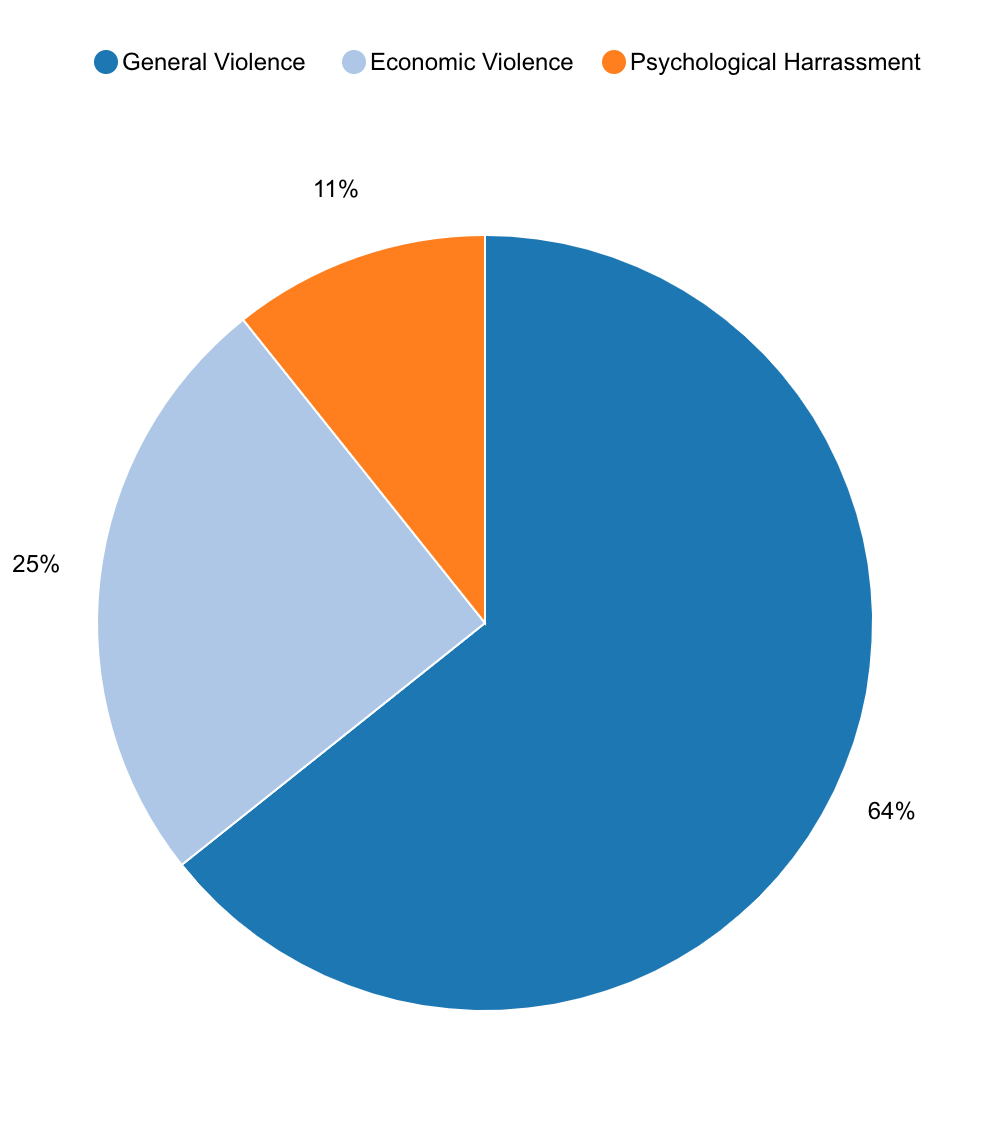
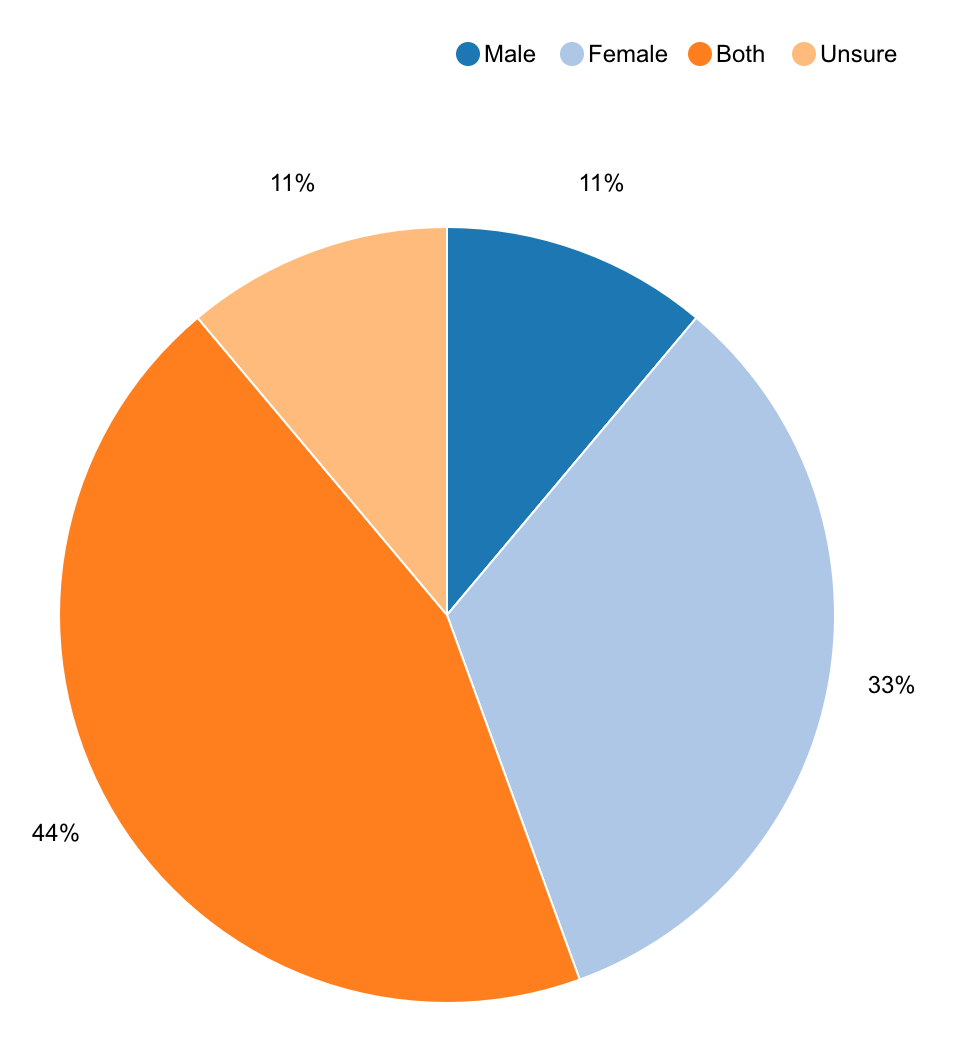
In observed incidents of unspecified violence or aggression, women were 33% of the victims. Most observed incidents that were reported had both male and female victims (44%).
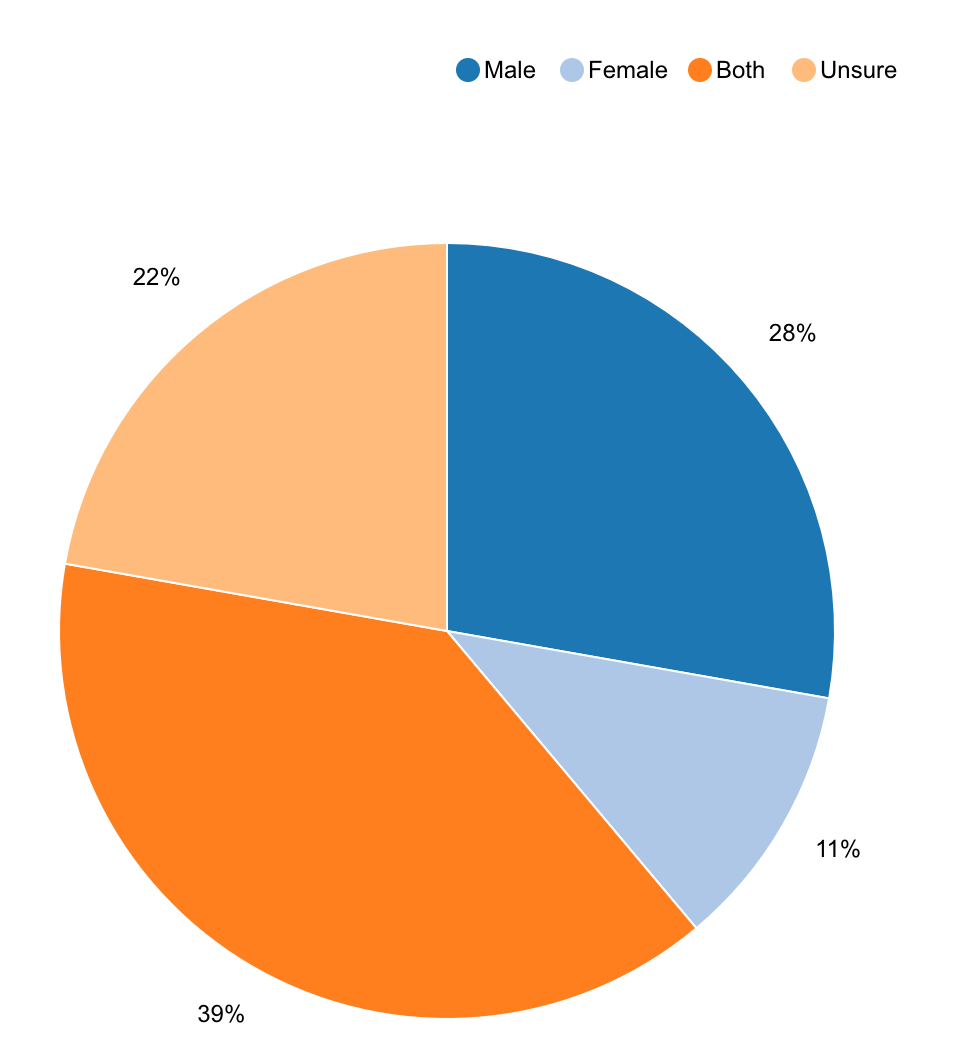
Women acting alone were a small percentage of the perpetrators of observed incidents of unspecified pre-election violence. Most perpetrators were in mixed-gender groups.
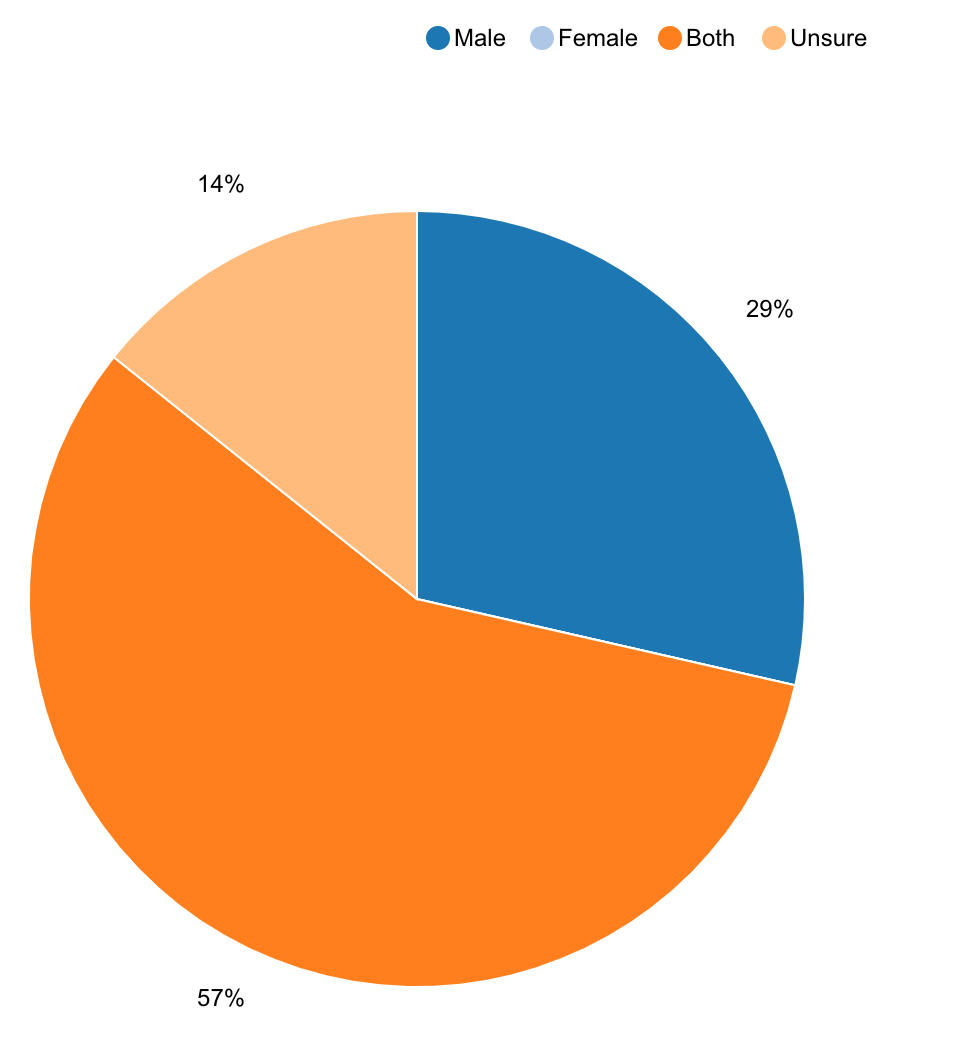
There were very few observed incidents of economic violence in the pre-electoral period. This violence included property damage, for example of campaign materials. Most victims of this violence were men.
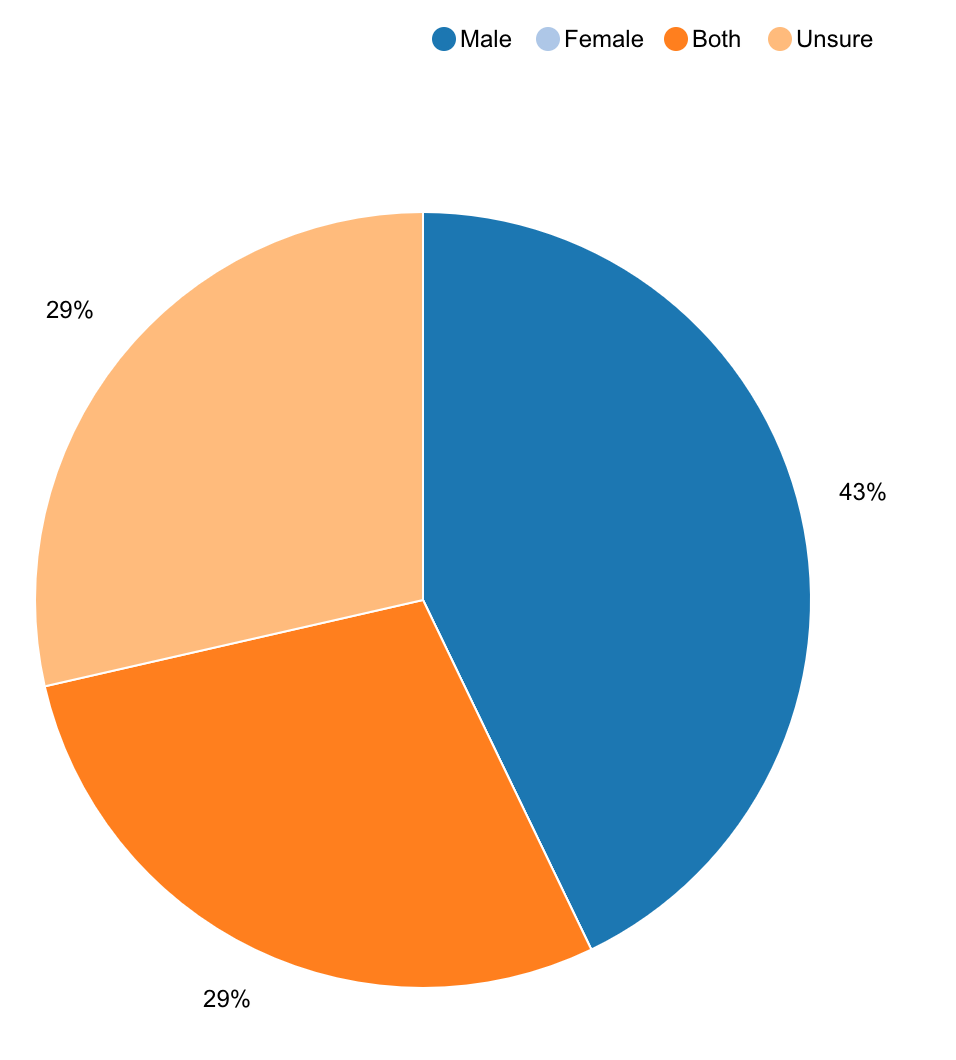
Women acting alone were a small percentage of the perpetrators of observed incidents of unspecified pre-election violence. Most perpetrators were in mixed-gender groups.
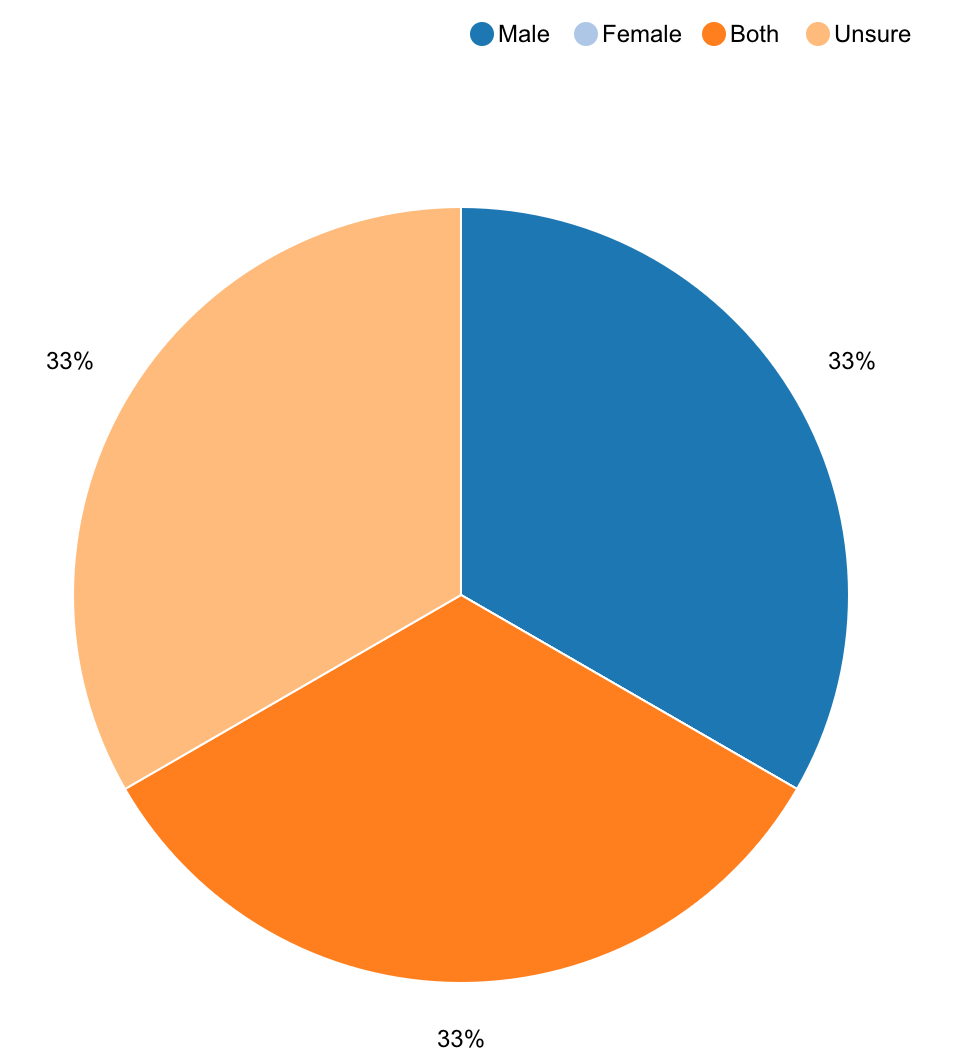
As with economic violence, reported incidents of violence showed that women were targeted by psychological violence as part of mixed-gender groups.
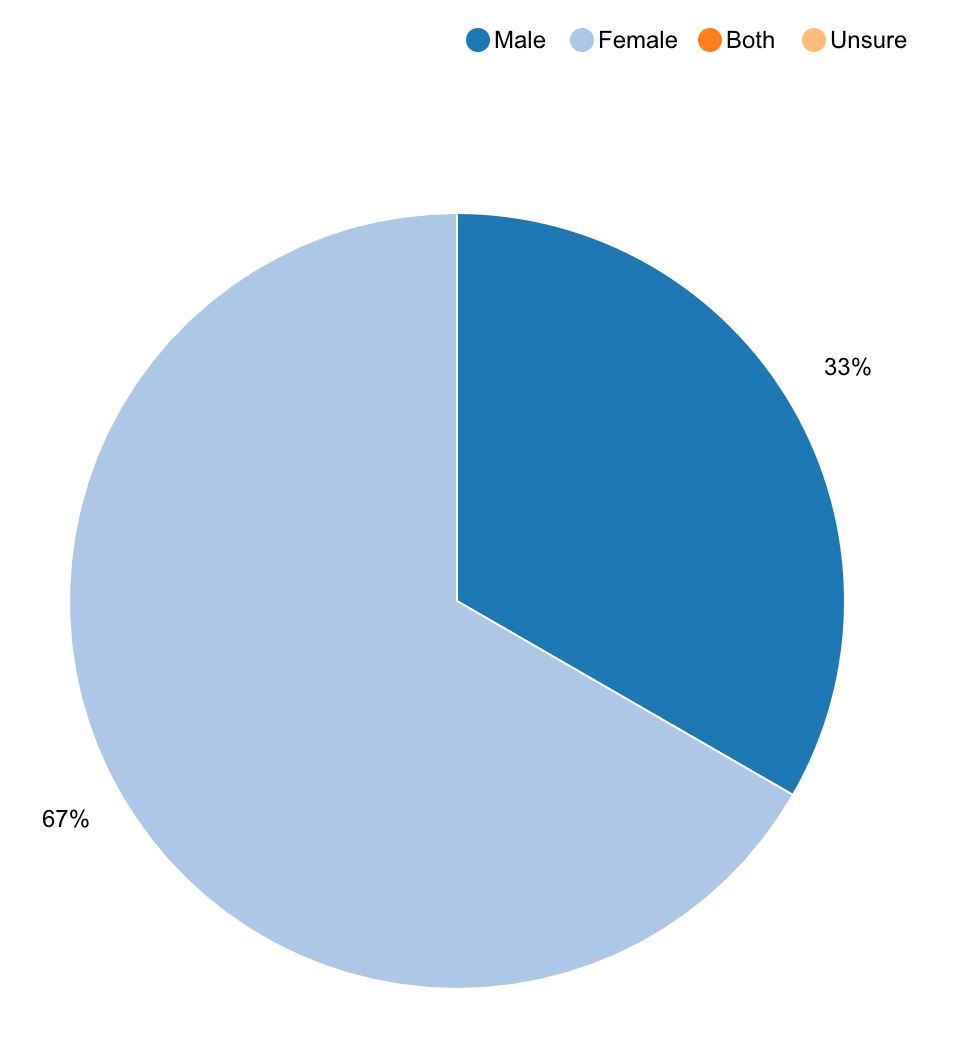
Very few incidents of psychological violence occurred -- but where they did, women were more likely to be perpetrators, with little difference in who was targeted.
ELECTION DAY
POECI’s election day observation showed that the election was conducted in a peaceful fashion overall.
On the day of elections, October 25, 2015, POECI deployed observers systematically throughout the country to observe the voting process using a parallel vote tabulation (PVT). For the observation, POECI stationed 755 observers directly at polling stations, and deployed a further 119 into the field as mobile observers, who were not fixed at a polling station. By using PVT methodology, POECI was able to identify trends that affected the different procedures on election day, from the opening of the voting process to the tabulation and announcement of results. POECI’s election day observation showed that the election was conducted in a peaceful fashion overall.
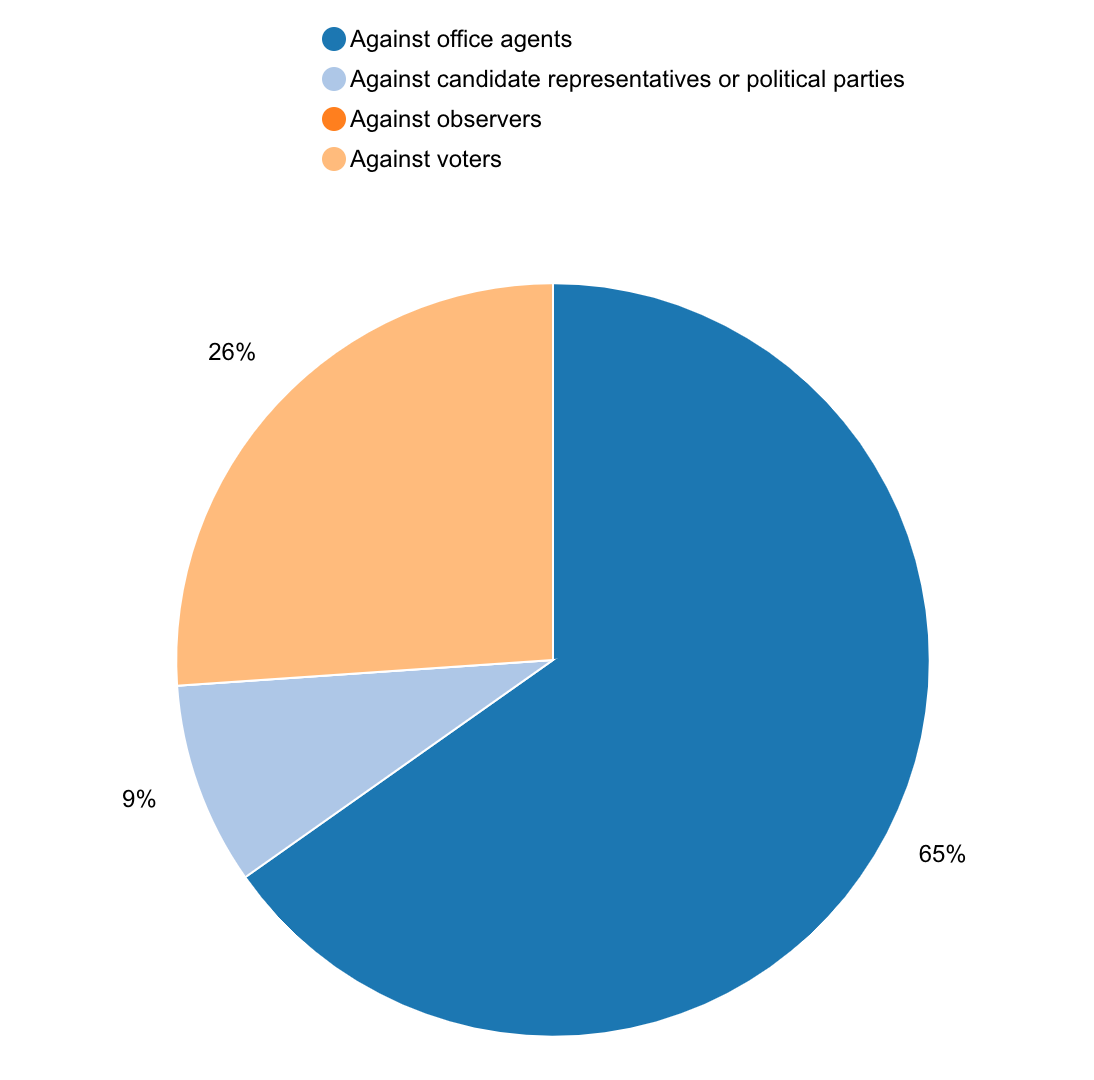
The observed incidents of violence were far more frequently perpetrated by office agents, who were most frequently men. However, victims were also most likely to be male office agents. Women voters, though, were more likely than men to be targeted by violent incidents.
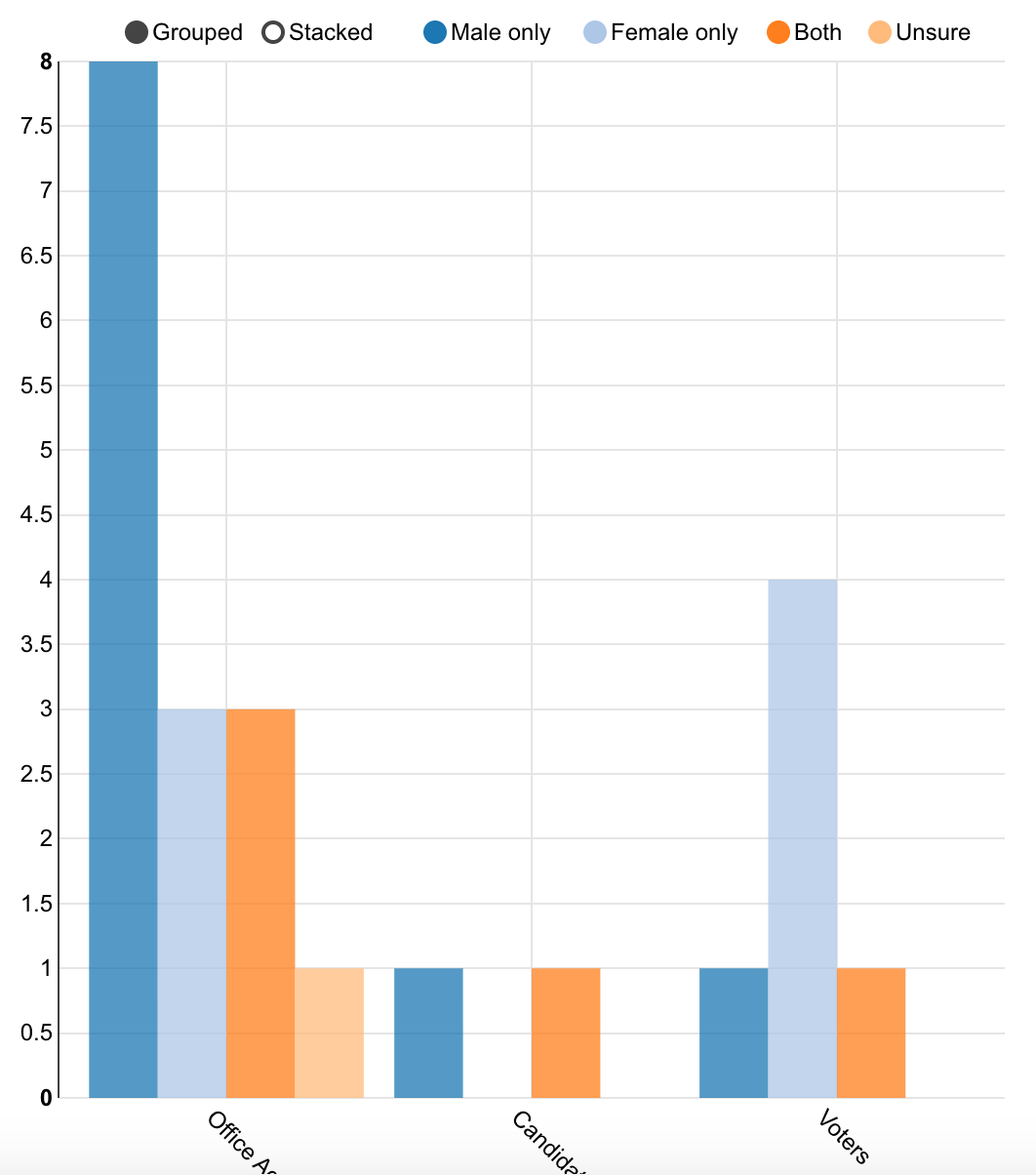
Male office agents were the most frequent victims of the incidents of psychological violence recorded on election day. Women voters, however, were more likely than male voters to be targeted by violent incidents.
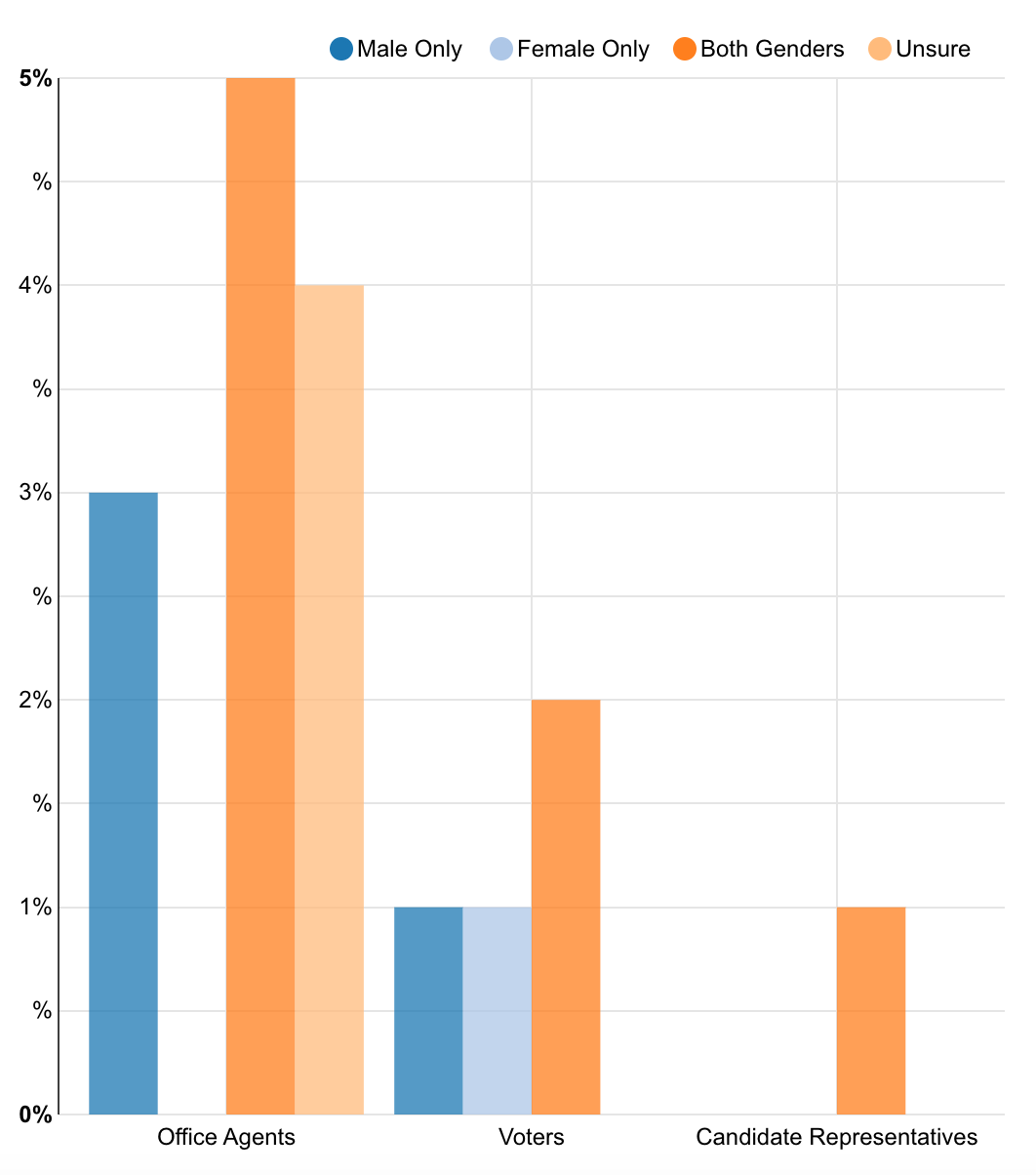
The observed incidents of violence were far more frequently perpetrated by office agents, who were most frequently men.
ABOUT THE OBSERVATION
POECI first conducted an observation focused specifically on the process of voter registration, in addition to an observation of the general pre-election environment. On the day of elections, POECI deployed observers systematically throughout the country to observe the voting process using a parallel vote tabulation.
POECI first conducted an observation focused specifically on the process of voter registration, in addition to an observation of the general pre-election environment. The voter registration observation lasted through the officially designated period for revision of the electoral list, which was conducted from June 1, 2015 through July 12, 2015. Following this targeted observation, POECI undertook a general pre-election observation from August 29, 2015 to October 22, 2015. During this observation, POECI systematically deployed 119 departmental coordinators across the country to monitor the pre-electoral environment.
On the day of elections, October 25, 2015, POECI deployed observers systematically throughout the country to observe the voting process using a parallel vote tabulation (PVT). For the observation, POECI stationed 755 observers directly at polling stations, and deployed a further 119 into the field as mobile observers, who were not fixed at a polling station.
The Votes Without Violence project, initially developed by the National Democratic Institute, has examined violence against women in elections in the following countries. You can view each country's data individually or check out our cross-country analysis.